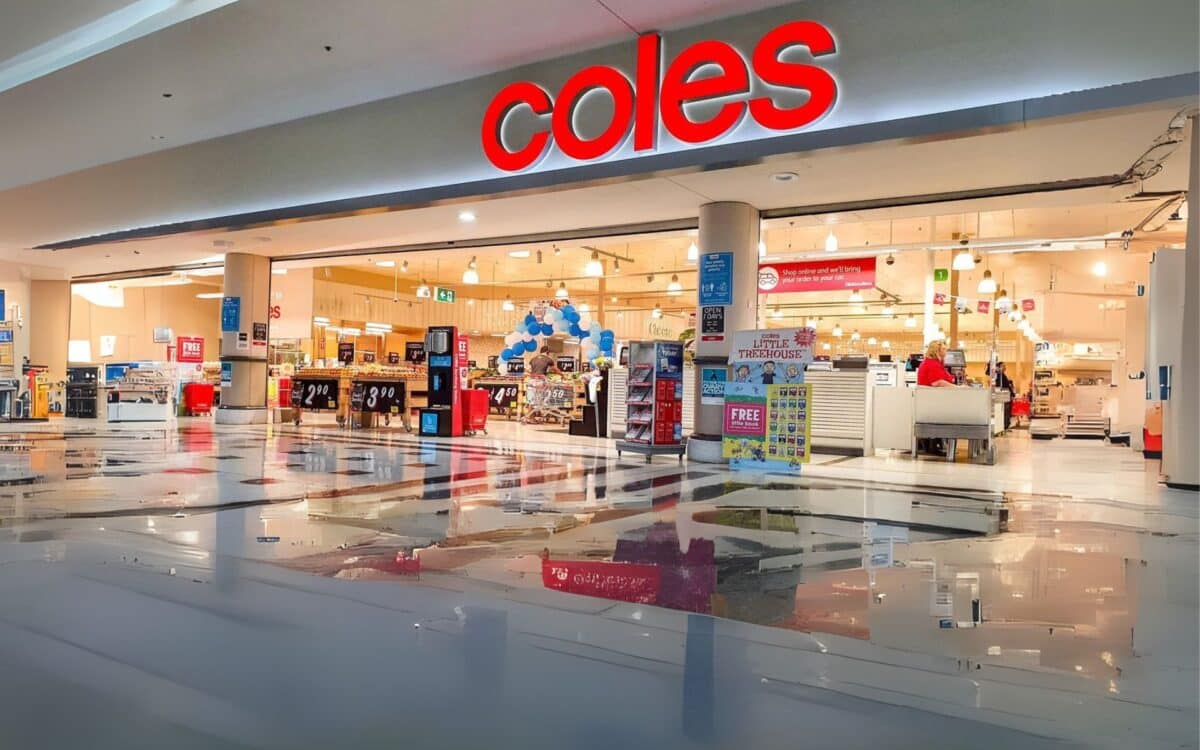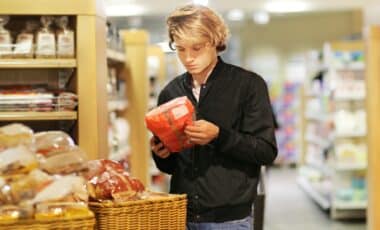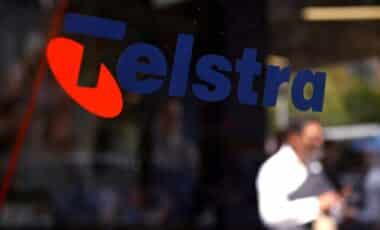A viral image posted by a customer has drawn fresh attention to Coles and its environmental claims, after two directly adjacent signs in the supermarket’s fresh produce section sent conflicting messages about plastic use.
One urged shoppers to skip plastic bags for loose fruits and vegetables, while the other justified plastic wrapping for cucumbers to extend shelf life. The apparent contradiction has sparked widespread backlash and accusations of greenwashing.
7NEWS reported on the growing criticism, highlighting public frustration over what many see as corporate messaging that reveals little real change. In response, Coles has issued statements that remain vague and largely noncommittal.
Back-To-Back Signage Sparks Confusion
In the fruit and vegetable section of a Coles store, two signs were placed directly back-to-back. One read:
Do you really need a bag? Place your loose fruit & veg directly into the basket. – The other stated
We wrap cucumbers to stay fresh longer.
The visual contradiction quickly drew attention online and triggered a broader debate about retailer responsibility in plastic usage.
Public Backlash Over Perceived Blame Shifting
Social media users were quick to voice their frustration at what they viewed as misplaced accountability. One Reddit user wrote:
They use plastic with pretty much every product, yet put the blame on us for using a plastic bag at checkout and to bag our fruit and veg. It’s all crap. Plastic is the customer’s fault? Look around, Coles, WE aren’t the problem.
Another added:
Yes, we need bags. It’s never been about the environment it’s about control and money. If Coles and Woolworths regularly had their trolleys and baskets pressure cleaned… you wouldn’t need bags.
These comments reflect growing consumer skepticism toward corporate sustainability narratives that appear inconsistent with on-shelf practices.
Coles Defends Its Sustainability Policies
In response to questions from 7NEWS.com.au, a Coles spokesperson reaffirmed the company’s environmental efforts:
Coles is committed to reducing unnecessary plastic and making our packaging easier to recycle.
They elaborated:
We encourage our customers to purchase loose fruit and vegetables as just a way to help reduce the use of single-use plastic bags – Coles also pointed to new packaging innovations
Customers can now purchase grapes in bags that are recyclable in household recycling bins rather than single-use plastic. Last year we trialled fibre-based blueberry packaging in recyclable cardboard punnets and also introduced Coles’ Unique Selection mandarins in a recyclable bag.
Additional efforts include the sale of reusable tote, chiller, and mesh produce bags.
Experts Question Efficacy of Plastic-Based Solutions
Environmental scientist Paul Harvey expressed doubt about the actual benefits of these practices.
I always ask, if a plastic package can extend the shelf life of a ‘fresh’ food item for days or weeks, then what is the nutritional value of that product? – he said.
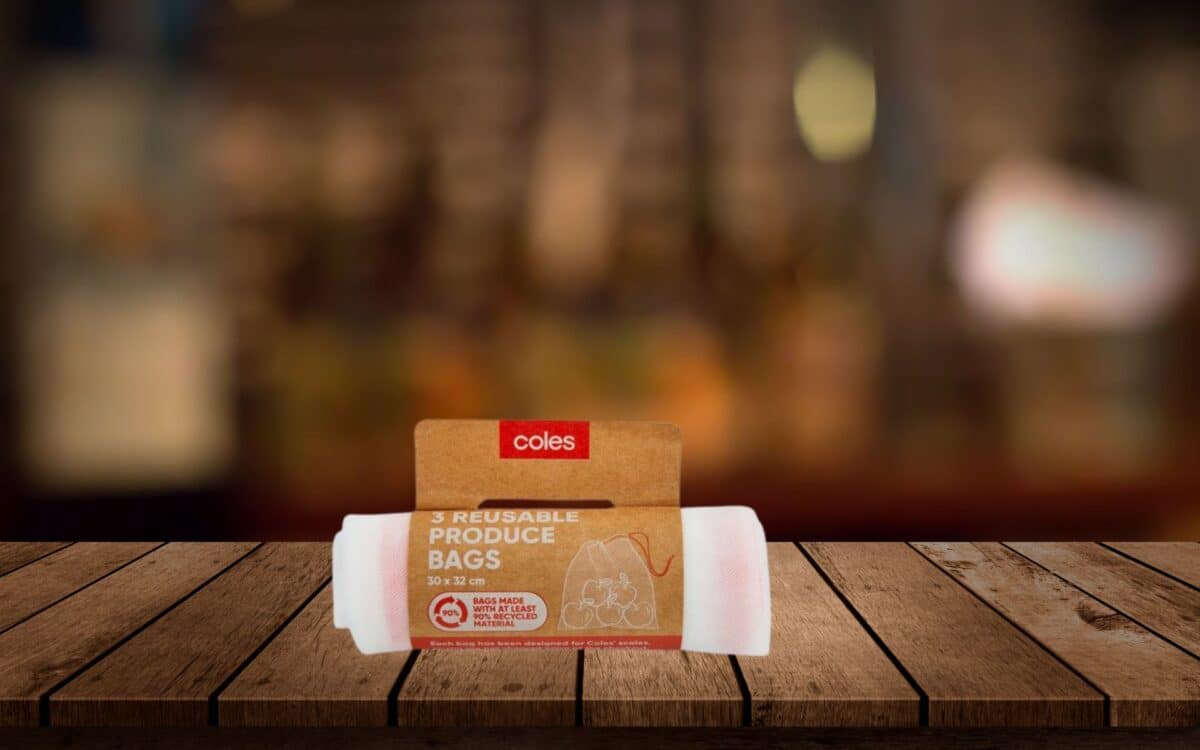
He argued that plastic wrapping fails to prevent waste:
The reality is, there is copious volumes of food waste each day, and this happens regardless of the item being wrapped in plastic – Furthermore, he added:
Often when the item has been on the shelf too long the item will get thrown into the garbage still wrapped in plastic, heading straight for one of those near-capacity landfills.
Superficial Measures and Retail Contradictions
Harvey was also critical of the symbolic nature of many supermarket initiatives:
Supermarkets run a ‘plastic free’ campaign while at the same time have a giveaway that includes useless plastic figurines.
He suggested that real change would require supply chain reform, not marketing gestures:
If the supermarkets used their market power to put pressure on manufacturers to reduce or remove plastic from packaging then we would begin to see a drastic decline in plastic and other waste management challenges.
Packaging Priorities: Not Quality, but Saleability
According to Harvey, most plastic packaging in fresh food departments has less to do with protecting the product and more with sales and inventory control.
Most of the plastic packaging that is used in the fresh food departments has little to do with product quality control, and more to do with saleability of the product… or stock inventory control – he explained.
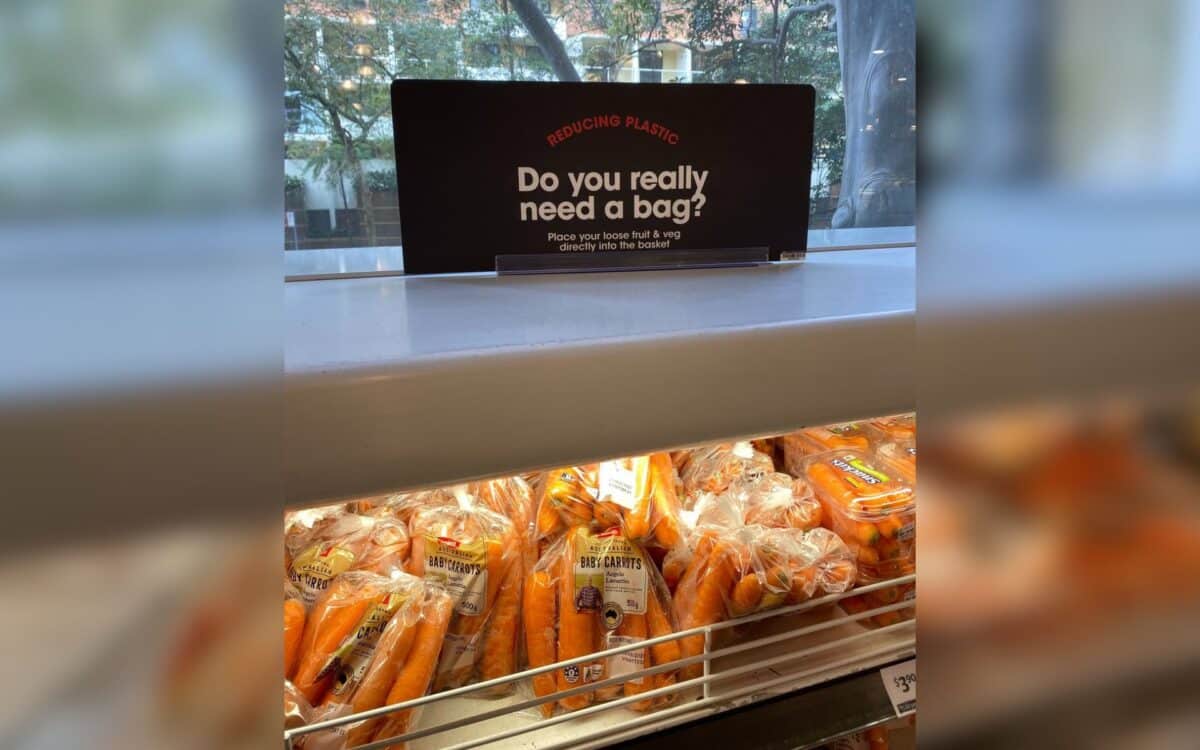
He further emphasized the sector’s role in the crisis:
The products that big retailers sell are one of the largest contributors to the plastic pollution crisis.
Greenwashing and Misleading Labels
The expert also raised concerns about misleading environmental claims on packaging:
Often the packages contain baseless claims about containing ‘near ocean’, ‘ocean bound’ or ‘compostable’ materials.
He warned that it is increasingly hard for shoppers to discern legitimate environmental products:
It is very difficult for consumers to actually know what is good and what is greenwashing.

